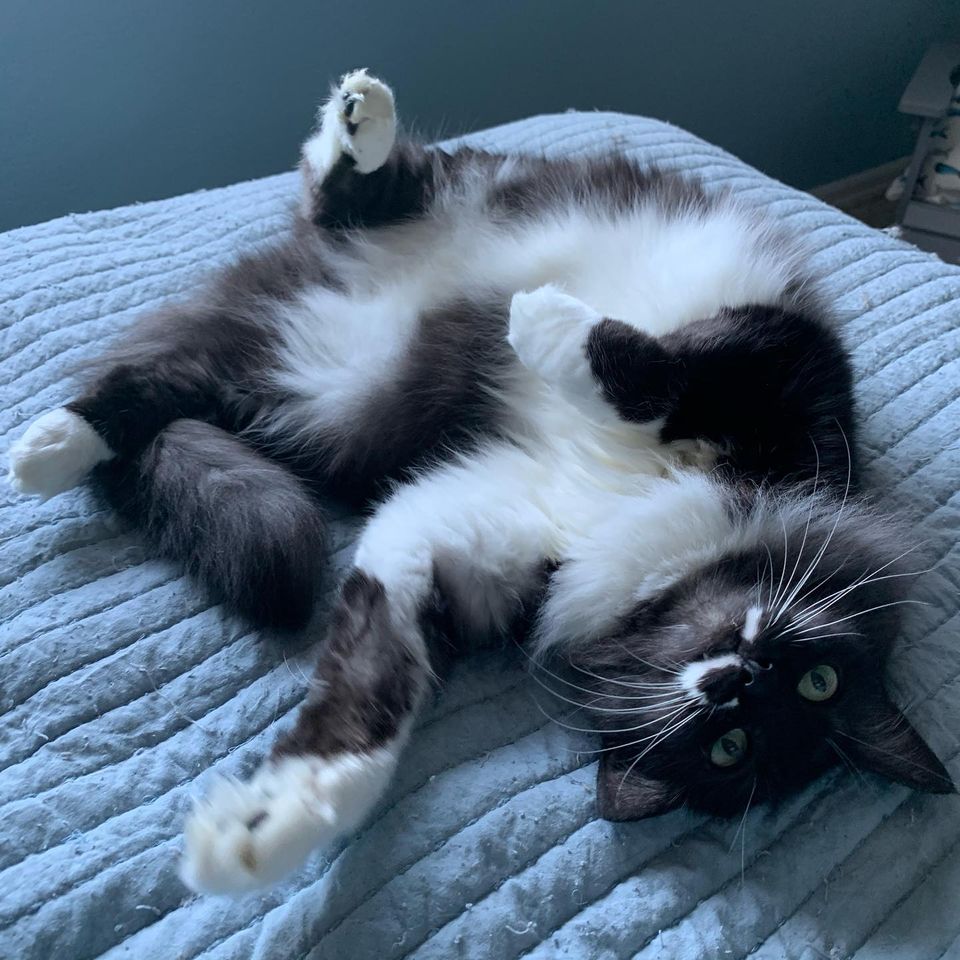Stem Cells for Cats on National Cat Day
Yesterday, October 29th, was National Cat Day! We could not let this holiday pass by without a shout out in our blog! We at VetStem love cats and employ quite a few self-professed “crazy cat ladies.”

National Cat Day was created to bring awareness to the many cats that need rescuing each year and to “encourage cat lovers to celebrate the cat(s) in their life for the unconditional love and companionship they bestow upon us.” According to the American Veterinary Medical Association (AVMA), in 2017-2018 over 25% of the households in the United States owned cats. With over 30 million households owning an average of 1.8 cats, that means there were nearly 60 million family cats in the United States at the time of the AVMA’s pet ownership survey. That is a lot of cats!
Regenerative Medicine for Cats
To honor our feline friends, we have compiled a review of stem cell uses for cats. Like dogs and horses, cats may benefit from VetStem Cell Therapy for arthritic joints or injured tendons and ligaments. In addition, many veterinarians have used VetStem Cell Therapy in cats for kidney disease, gingivostomatitis, and inflammatory bowel disease.
Osteoarthritis
Though we tend to think of dogs when it comes to arthritis, cats are susceptible to the disease as well. Unlike some dogs, cats are very good at hiding their pain. If you are unsure if your cat is in pain, speak to your veterinarian. We’ve also written a few blogs on the topic: click here and here to learn some of the possible signs of pain in cats.
Though most of our osteoarthritis data is from dogs, cats have experienced similar results when treated with VetStem Cell Therapy. Stem cells may reduce pain and inflammation associated with osteoarthritis and may lead to the regeneration of damaged joint tissues. This can result in increased mobility and a better quality of life for your kitty.
Kidney Disease
Nearly 200 cats have received VetStem Cell Therapy for chronic kidney disease (CKD). CKD is a common cause of sickness and death in cats. In fact, some reviews suggest that CKD may be the number one cause of sickness and death in older cats. Unfortunately, treatment options are limited and can be costly.
VetStem veterinarians have seen some promising results in the treatment of feline CKD. Based upon data from a small number of feline patients treated with VetStem Regenerative Cell Therapy, blood kidney values were slightly to moderately improved after treatment. While more evaluation is necessary, these preliminary results suggest that stem cell therapy may be a low-risk treatment option for cats with CKD.
Gingivostomatitis
Another debilitating feline disease is gingivostomatitis, which affects the gums, teeth and sometimes upper throat of cats. Gingivostomatitis causes oral pain which leads to other symptoms such as decreased appetite, reduced grooming, and weight loss. The most common treatment is extracting all the cat’s chewing teeth, however only about 70% of cats will respond to this treatment. The remaining 30% of cats that do not respond will require lifelong treatment with medications.
Some veterinarians have seen favorable results using VetStem Cell Therapy in cats affected by gingivostomatitis. In addition, two small studies conducted at the University of California Davis showed that when fat-derived stem cell therapy was utilized in addition to teeth extractions there was improvement or remission in the majority of cats treated. VetStem believes that fat-derived stem cell therapy without full extractions may be beneficial.
Inflammatory Bowel Disease
Inflammatory Bowel Disease (IBD) is a gastrointestinal disease that can affect both cats and dogs. It is characterized by inflammation of the intestines and can cause vomiting, diarrhea, reduced appetite, and weight loss. It is important to note however, that these symptoms can be indicative of several conditions including feline lymphoma. Since VetStem Cell Therapy is contraindicated in pets with cancer, it is essential to rule this out before pursuing treatment with stem cells.
Several cats have received VetStem Cell Therapy for IBD. In a case study where a 4-year-old Himalayan cat developed IBD, treatment with VetStem Regenerative Cell Therapy quickly resolved the cat’s diarrhea and vomiting and led to an increased appetite with no recurrence. To add to that, in a recently published paper, 5 out of 7 cats that were treated with stem cells were significantly improved or had complete resolution of symptoms, whereas the 4 control cats had no improvement. One of our veterinary clients also wrote a guest blog about one of his feline patients who received VetStem Cell Therapy for IBD.
If you believe your cat may benefit from VetStem Cell Therapy, speak to your veterinarian. Or contact us to receive a list of VetStem providers in your area. Maybe stem cell therapy is just the gift your cat needs for National Cat Day!
